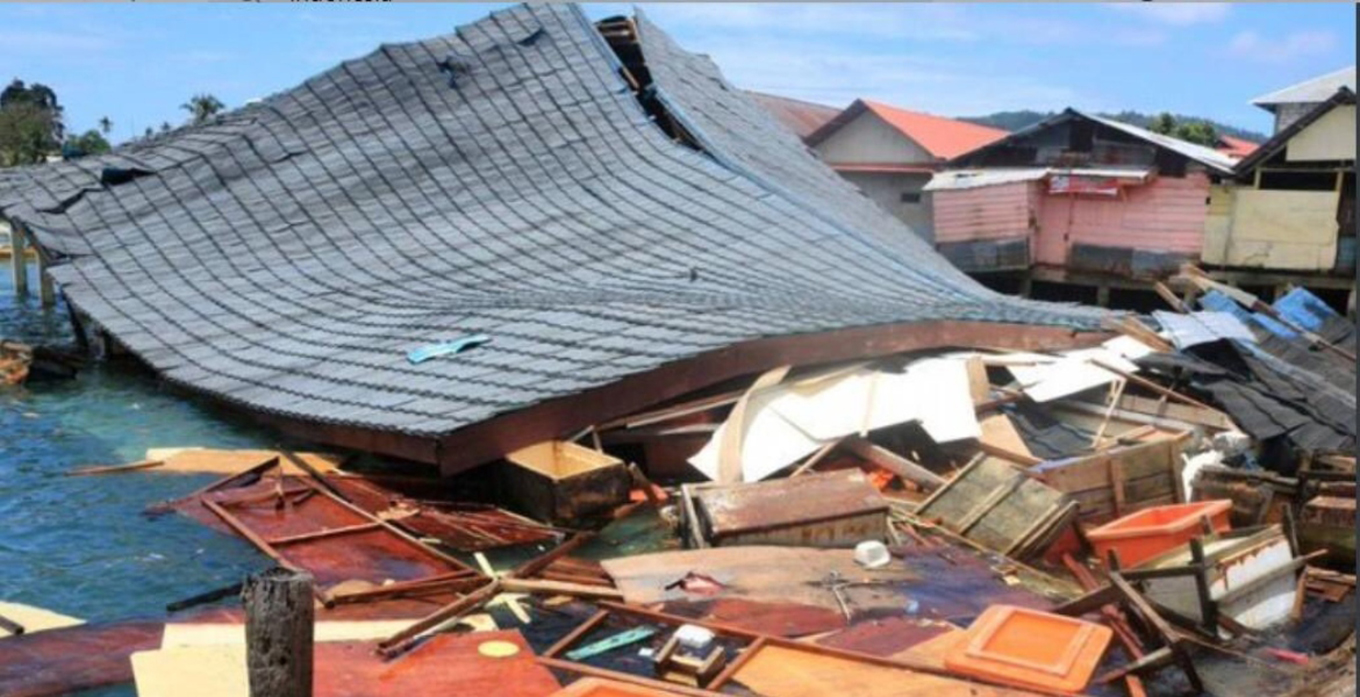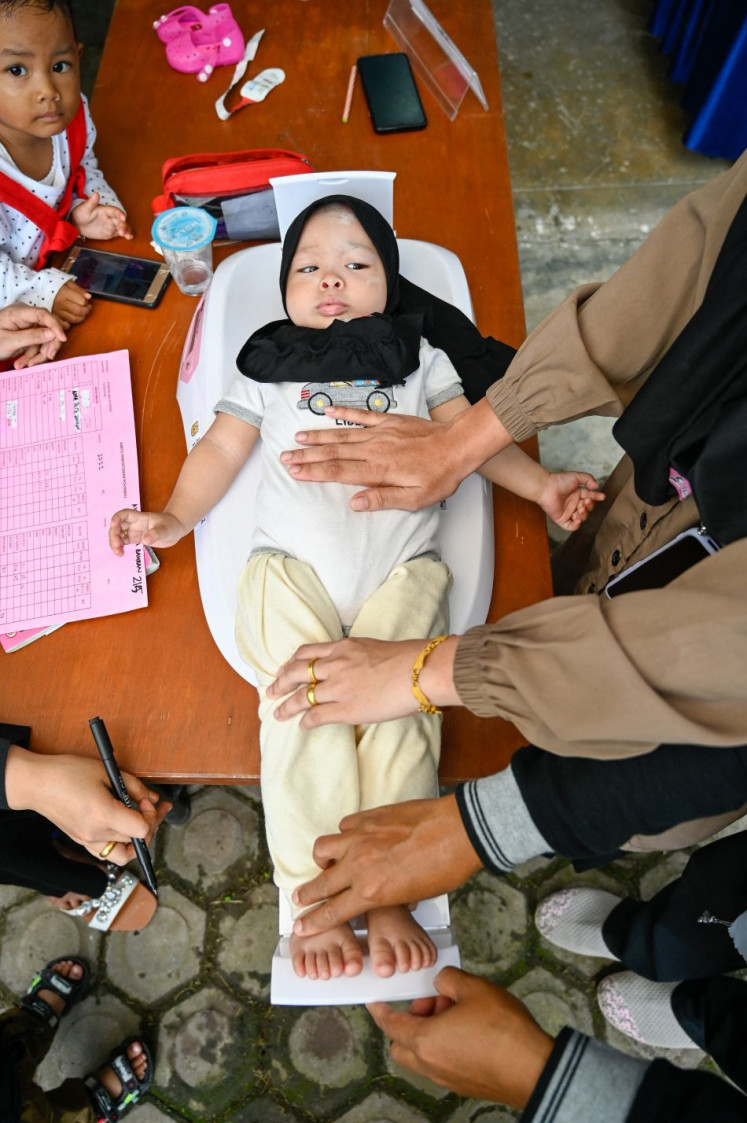Popular Reads
Top Results
Can't find what you're looking for?
View all search resultsPopular Reads
Top Results
Can't find what you're looking for?
View all search resultsPrecarious living
“Try to live in a tent for a year, then tell me how to be strong,” a survivor told The Jakarta Post. Even though the woman, Sri Tini Haris, still has her husband and children, like others she is struggling in a “second disaster” as she desperately seeks to resume some normalcy.
Change text size
Gift Premium Articles
to Anyone
I
t can be hard getting used to living in our precarious islands, with frequent disasters mercilessly snatching lives and livelihoods away.
Thousands fled their homes in Ambon, the provincial capital of Maluku, early on Thursday as a major earthquake struck, reportedly killing 23 people and damaging hundreds of homes and buildings. Authorities said the quake, measuring 6.5 on the Richter scale and with its epicenter 10 kilometers under the ground, was followed by hundreds of aftershocks. The neighboring North Maluku province experienced an earthquake in July, killing two residents.
Survivors were told the latest quake was not expected to produce a tsunami, but authorities have been wrong before — fatally. Today marks the first anniversary of the horrific triple disaster in Central Sulawesi — an earthquake measuring 7.4 on the Richter scale, followed by a tsunami, after a tsunami warning was revoked, and the sudden rise and fall of soil in specific areas, which we later learned was called liquefaction. The disaster on Sept. 28, 2018 in the regencies of Palu, Donggala and Mamuju killed more than 4,000 residents and destroyed more than 100,000 homes. Thousands remain homeless.
“Try to live in a tent for a year, then tell me how to be strong,” a survivor told The Jakarta Post. Even though the woman, Sri Tini Haris, still has her husband and children, like others she is struggling in a “second disaster” as she desperately seeks to resume some normalcy.
In this disaster-prone archipelago, at the very least strict building codes and their enforcement would save many lives. The national capital Jakarta has had building codes for decades in anticipation of earthquakes — with poor enforcement. In Central Sulawesi the administration had actually received prior warning based on the history of disasters in the region, and it is now feared large areas can never be inhabited. Residents need to be consulted when it comes to designing reconstruction efforts. Following the Dec. 26, 2004 earthquake and tsunami in Aceh and Nias in West Sumatra, few residents obeyed orders not to rebuild near the coast. “Where else would we build?” said a resident in the small town of Calang, flanked by the sea in Aceh Jaya regency.
Today, however, few can afford to think far ahead. Survivors in Sulawesi still report receiving little help despite massive donations from various nations, organizations and countless individuals. Unresolved red tape and a lack of data among the relevant authorities at the central and local level are suspected to be a major hindrance in the channeling of aid. This failure in the basic task of ensuring a lifeline is unacceptable in a country that should have learned from the 2004 tragedy.
The central and local government agencies need to urgently help ease the suffering in areas affected by disasters such as in Maluku and Central Sulawesi. After a year in the tents, no survivor can understand why they have not yet received their long overdue entitlement of Rp 600,000 (US$42.31), which is supposed to cover 60 days following a disaster. Administrators say they still need to confirm identities based on residents’ papers, which were mostly lost in the catastrophe. This is not good enough and the response needs to improve, now and in the future.










